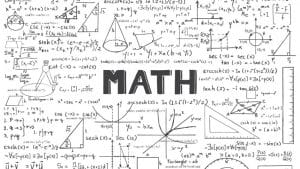Stanford University Mathematics Camp (SUMAC): 11 Great Reasons to Apply
The Stanford University Mathematics Camp (SUMaC) is a summer program designed for high school students who have a strong interest in mathematics. At SUMaC, students get to study advanced mathematical topics that are not typically covered in high school, such as abstract algebra, number theory, and combinatorics.
The camp brings together students from around the world, giving them the opportunity to learn from expert faculty, engage in research projects, and connect with other passionate math enthusiasts. Here are 11 great reasons why applying to SUMaC could be one of the best decisions you can make for your personal and academic development.
1. Intensive Study in Advanced Mathematics
This isn’t your typical high school math curriculum. At SUMaC, you’ll explore areas of math that are usually reserved for college students or even graduate-level research. Topics such as abstract algebra, number theory, and combinatorics are just the beginning.
The program is designed to stretch your understanding and challenge your problem-solving skills in ways you haven’t experienced before. You’ll be encouraged to think abstractly and apply logical reasoning to solve complex problems. This intensive study not only enhances your mathematical skills but also prepares you for the rigorous academic challenges you’ll face in college and beyond.
2. Interaction with Brilliant Peers
One of the standout benefits of the Stanford University Mathematics Camp is the chance to meet and interact with peers who are just as passionate about mathematics as you are. Imagine being in a community where everyone speaks the language of math, where you can discuss complex problems and share insights without simplifying your language or ideas. This stimulating environment encourages you to push your boundaries and think more creatively.
Collaboration is a key part of the SUMaC experience. You’ll work on projects and problems together, learning from each other and benefiting from diverse perspectives. This interaction is not only academically enriching but also builds social skills and friendships that can last a lifetime. It’s an opportunity to connect with like-minded individuals from all over the world, forming a network of future mathematicians, scientists, and engineers.
3. Guided Research Projects
At the Stanford University Mathematics Camp, you’re not just learning advanced mathematical theories; you’re applying them. The camp includes guided research projects that allow you to explore mathematical problems and concepts in depth. These projects are designed to develop your critical thinking and problem-solving skills by encouraging you to ask questions, formulate hypotheses, and test your ideas.
Working on these projects under the guidance of experienced educators and researchers, you’ll gain valuable experience in how mathematical research is conducted. You’ll learn how to approach problems systematically, analyze data, and present your findings clearly. This hands-on experience is invaluable, giving you a taste of what it’s like to contribute to the field of mathematics.
4. Expert Faculty and Guest Lecturers
Attending the camp offers you the unique chance to learn directly from some of the brightest minds in mathematics. The faculty at SUMaC consists of Stanford University professors and other experts who are not just leaders in their fields but also passionate educators. They bring complex mathematical concepts to life, blending theory with practical application in a way that is both engaging and inspiring.
In addition to the dedicated faculty, SUMaC regularly invites guest lecturers from various mathematics disciplines. These guest sessions provide you with a broader perspective on the world of mathematics, showcasing the wide range of opportunities and challenges in the field today. It’s a rare opportunity to engage with and learn from individuals who are at the forefront of mathematical research and innovation.
5. College Application Enhancement
Stanford University Mathematics Camp (SUMaC) is a prestigious program that can boost your college application. Colleges value students who show commitment to their academic interests, especially in challenging programs like SUMaC. Attending SUMaC shows your passion for math and your ability to succeed in challenging environments.
The skills and experiences you gain at SUMaC, such as engaging in advanced math study and completing a guided research project, highlight your readiness for college-level work. Your participation also shows you’re proactive about your education and willing to invest in your growth. These qualities are attractive to admissions committees. Plus, letters of recommendation from SUMaC faculty carry weight and can make your college application stand out.
6. Residential Campus Experience
Living on Stanford’s campus is a unique experience that provides a taste of college life. You’ll stay in dorms, eat in dining halls, and use university facilities. This glimpse into college living will expose you to a structured and supportive environment that promotes independence and personal growth. You will also learn to balance studies with social activities. The campus allows you to experience Stanford’s vibrant community and its traditions.
This holistic campus experience contributes to your personal growth and prepares you for the transition to college. You’ll develop time management and self-discipline as you navigate your daily schedule. You’ll have access to various resources, including libraries, labs, and athletic facilities, which can enrich your stay and provide a break from academics. It’s a well-rounded experience that helps you become more independent, responsible, and socially aware.
7. Cultural and Recreational Activities
The Stanford University Mathematics Camp isn’t just about studying; it’s also about enjoying a well-rounded experience. Alongside the intensive academic program, you’ll have access to a variety of cultural and recreational activities. These activities are designed to provide a balance to the rigorous study schedule, allowing you to relax, have fun, and explore new interests. From sports and outdoor adventures to cultural outings and creative workshops, there’s something for everyone.
Participating in these activities gives you a chance to unwind and bond with your peers outside of the classroom. It’s an opportunity to build friendships and create memories that last a lifetime. Whether you’re showcasing your talent in a talent show, exploring the Stanford campus, or participating in a group outing to nearby attractions, these experiences contribute to your personal growth and enhance your overall camp experience.
8. Networking Opportunities
You’ll meet not only peers with similar interests and aspirations but also professors, guest lecturers, and professionals in the field of mathematics. These connections can be a significant asset as you pursue your academic and career goals. Engaging with a network of motivated students and accomplished mathematicians opens doors to mentorship, internships, and collaborative projects.
Building relationships at SUMaC can also provide a support system as you navigate future challenges in your academic journey. Staying in touch with your SUMaC peers and instructors can lead to ongoing advice, encouragement, and collaboration. The network you build here can be a source of opportunities and support for years to come.
9. Exposure to College-Level Coursework
The Stanford University Mathematics Camp offers you a unique preview of college-level coursework. The subjects you study, the intensity of the coursework, and the expectation to engage in independent research mirror the academic environment you will encounter in college. This exposure is invaluable in preparing you for the transition from high school to higher education.
Experiencing this level of academic rigor before entering college can boost your confidence and academic skills. You’ll learn how to manage your time effectively, tackle complex problems, and engage in self-directed study. These skills are crucial for success in any college program, especially in challenging fields like mathematics and science.
10. Personal Growth and Development
SUMaC is not just an academic program; it’s a personal journey. The challenges you face and the achievements you celebrate at the camp contribute to your personal growth and development. You’ll develop not only advanced mathematical skills but also soft skills such as teamwork, leadership, and effective communication. These skills are essential in any field and will benefit you throughout your life.
The process of overcoming academic challenges, collaborating with peers, and adapting to a new environment fosters resilience, independence, and self-awareness. These personal qualities are as important as your academic achievements in shaping your future.
11. Access to Stanford Resources
Lastly, attending the Stanford University Mathematics Camp gives you access to an array of Stanford University resources. You’ll use state-of-the-art facilities, including libraries, computer labs, and athletic facilities. These resources can enhance your learning experience, providing you with tools and spaces that support your academic and personal interests.
Having access to such resources also allows you to explore new areas of interest, develop new skills, and enjoy a range of extracurricular activities. Whether you’re diving into research in the library, working on a project in the computer lab, or staying active in the athletic facilities, these resources contribute to a rich and fulfilling camp experience.
What is the Difference Between SUMaC Residential and SUMaC Online?
Both formats aim to provide a challenging and enriching experience, though there are notable differences in their structure, duration, and participant engagement methods.
SUMaC Residential Program:
- The residential program has a duration of four weeks for its single session, running from June 23 to July 19, 2024.
- It accommodates 40 participants, offering an immersive campus experience at Stanford University.
- The program includes daily class sessions, problem sets, weekday TA sessions, and structured evening and weekend social activities.
- Final research projects are presented at the end of the program.
- Participants live in Stanford dormitories and have meals together, fostering a community atmosphere.
- Transportation is provided from the San Francisco International Airport on designated arrival and departure days.
- The residential setting allows for in-person social opportunities, field trips, and a deeper exploration of Stanford’s campus.
SUMaC Online Program:
- The online version is a faster-paced three-week curriculum, offered across two sessions: Session One from June 17 to July 5, 2024, and Session Two from July 8 to 26, 2024.
- This format serves 64 participants and features daily TA and peer problem-solving sessions as well as online guest lectures.
- It emphasizes real-time online instruction, requiring active class participation with a microphone and camera.
- Final research projects in the online format are presented during a single day.
- The online program fosters engagement through a virtual community, with students participating in seminars, workshops, and social events designed to complement the academic experience.
- Requirements for the online program include a reliable internet connection, a computer that supports video conferencing, a webcam, and a suitable learning environment.
- Both Program I (Abstract Algebra & Number Theory) and Program II (Algebraic Topology) are available online, with specific sessions designated for each program.
The academic content in both the residential and online programs is rigorous and aimed at mathematical enrichment rather than for credit or grade. Despite the differences in delivery and environment, both programs strive to maintain an equal level of academic rigor and content, ensuring that all participants, regardless of the format they choose, experience the joy and challenge of advanced mathematics.
Prospective students should consider their learning preferences, availability during the summer, and readiness for the immersive nature of the residential experience or the flexibility and convenience of the online format when deciding which program to apply for.
Final Thoughts
At the Stanford University Mathematics Camp, you’re not just a student; you’re part of a community that values curiosity, innovation, and collaboration. The challenges you’ll face and the discoveries you’ll make are steps toward becoming not only a better mathematician but also a well-rounded individual ready to make meaningful contributions to society.
If you’re passionate about mathematics and ready to take your skills to the next level, SUMaC offers an unparalleled opportunity to do just that. It’s a place where you can push your limits, explore your interests, and set yourself up for success.









































